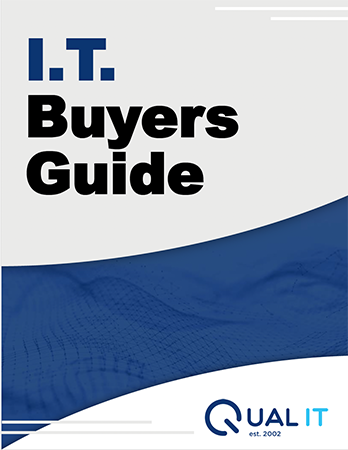
Look, here’s the thing…
When you finally clock out for a well-earned break—whether it's a fishing trip at Strawberry or a family week in Zion—you're probably setting a simple Out-of-Office message and shutting down the laptop.
But that friendly little auto-reply? It might be giving cybercriminals everything they need to hit your Salt Lake City manufacturing business right where it hurts.
Let’s break down how one overlooked setting can create a backdoor for hackers—and how to lock it up tight before it costs you.
🛑 Why Out-of-Office Replies Are a Manufacturing Cybersecurity Risk
A typical vacation message sounds innocent enough:
“Hi! I’m out of the office until [date]. For urgent matters, contact [coworker’s name and email].”
Convenient for clients. Also a blueprint for hackers.
Here’s what bad actors can pull from that single message:
- Your full name and role
- The exact dates you’re unavailable
- Who’s covering for you—and how to reach them
- Clues about your company’s internal structure
- Potential travel or event details (for social engineering)
If you're running a 50-person machining shop or electronics facility in West Valley, that message could open the door to a Business Email Compromise (BEC)—the kind that leads to spoofed emails, urgent wire transfer requests, or worse.
🧠 How Hackers Use Your OOO Message Against You
Here’s how it plays out:
- Your auto-reply is triggered by a phishing test or random scan.
- The hacker now knows you're unavailable—and who’s filling in.
- They spoof your email and send your team an urgent-sounding request.
- Someone in accounting or operations responds without verifying.
- By the time you’re back on site, you’re facing a financial loss or data breach.
Salt Lake manufacturers aren’t immune—in fact, you’re a prime target. You’ve got just enough complexity, just enough IP, and just enough trust in your team to be vulnerable.
⚙️ Why This Is a Bigger Deal for Manufacturers
Operations managers like Marcus don’t have time to second-guess every email. His admin might get a message that looks legit:
“Hey, can you process this wire before noon? I’m on the road and can’t log in. Use the account attached.”
He wants to help. He’s busy. He clicks.
Now your books—and maybe your client trust—are compromised.
In manufacturing environments with tight vendor schedules and sensitive blueprints or contracts, this isn’t just a tech issue—it’s a business survival issue.
🔐 5 Ways to Lock Down Your Out-of-Office Security
Here’s how Salt Lake City manufacturers can protect against auto-reply exploits and keep things running—even when leadership is off-grid:
- Keep Auto-Replies Vague
Don’t name your replacement or give dates. Say:
“I’m currently unavailable and will reply upon return. For urgent matters, contact our main office.”
Simple. Secure. No breadcrumbs for hackers.
- Train Your Team on Email Red Flags
Make sure they know:
- Never act on email-only requests involving money or sensitive data.
- Always verify via phone or video—especially during vacations or travel weeks.
- Implement Advanced Email Security
Use the tools your MSP should already have in place:
- Anti-phishing filters
- SPF, DKIM, and DMARC protocols
- Domain impersonation protection
- Enable MFA on All Accounts
Even if a password leaks, multifactor authentication (MFA) gives you a second wall of defense.
- Partner with a Local IT Team That Understands Manufacturing
Let’s be real: your industry is different. You’ve got MES systems, SCADA connections, old PCs next to CNC machines, and IP that matters.
You need an IT partner in Salt Lake who’s seen it all—and who doesn’t disappear when your Wi-Fi cuts out at 4:30 on a Friday.
🧭 Want to Take Your Next Break Without Becoming a Cyber Target?
We work with Salt Lake City manufacturers every day to build cybersecurity systems that hold strong, whether you're in the office or out by the lake.
🔍 Schedule a FREE Security Assessment today.
We’ll audit your email security, find the holes, and give you a solid game plan to stop phishing attempts, email impersonations, and vacation-based attacks before they hit your inbox.
You should be worrying about sunburns on your vacation—not hackers raiding your ERP.
That’s just how I see it.



